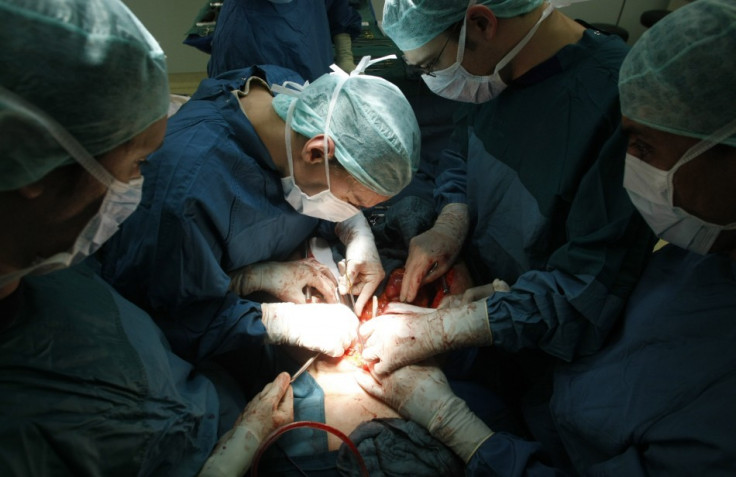‘Dead’ New York Woman Wakes Up During Organ Harvesting Surgery

A woman from New York woke up on a surgery table to find doctors preparing to harvest her organs for donation after they mistakenly assumed she was dead.
Colleen S Burns, 41, was a patient at St Joseph's Hospital Health Centre in 2009. She had arrived at the emergency room following a drug overdose, The Post Standard reports.
However, following a series of mistakes, staff thought she was dead and prepared her body for organ removal.
Errors included not performing enough brain scans, not testing to see the drugs had left her body and not providing the recommended treatment to stop the drugs from being absorbed by her stomach and intestines.
Doctors also ignored a nurse's observation that showed Burns was not dead, and that she was improving.
The hospital said Burns had suffered cardiac death and her family agreed to remove her from life support and donate her organs.
The day before the surgery, a nurse performed a reflex test to ensure she was non-responsive but her toes curled, strongly suggesting she was not dead.
Her nostrils also flared up before she was taken into surgery to have her organs removed, she was able to breath independently from the respirator she was attached to and her lips and tongue were moving, but doctors decided to go ahead with the surgery.
Records show that a nurse then gave Burns an injection of sedative. Staff only stopped the operation when Burns opened her eyes and looked at the lights in the operating room.
Near catastrophic event
Burns had been in a coma from the drug overdose and staff wrongly thought she had suffered irreversible brain damage without performing enough tests to confirm the diagnoses.
She was discharged from hospital two weeks later. However, 16 months on, she took her own life.
Her mother, Lucille Kuss, said the doctors never tried to explain why her daughter was believed to be dead: "They were just kind of shocked themselves. It came as a surprise to them as well. She was so depressed that it really didn't make any difference to her."
The family did not sue the hospital and an investigation was only carried out when the state Health Department probed St Joe's over the incident.
"Despite this sequence of events, intensive objective peer review and root cause analysis of the case was not done by the hospital's quality assurance programme until prompted by the Department of Health," the report said.
"The hospital did not undertake an intensive and critical review of the near-catastrophic event in this case. [The hospital did not] identify the inadequate physician evaluations of [Burns] that occurred when nursing staff questioned possible signs of improving neurological function. The patient did not meet criteria for withdrawal of care."
Kerri Howell, a spokeswoman for the hospital, told the newspaper that they have modified their policies to ensure this sort of incident does not happen again.
The hospital was fined $6,000 for the case and told to hire a neurologist to teach staff how to correctly diagnose brain death.
© Copyright IBTimes 2024. All rights reserved.






